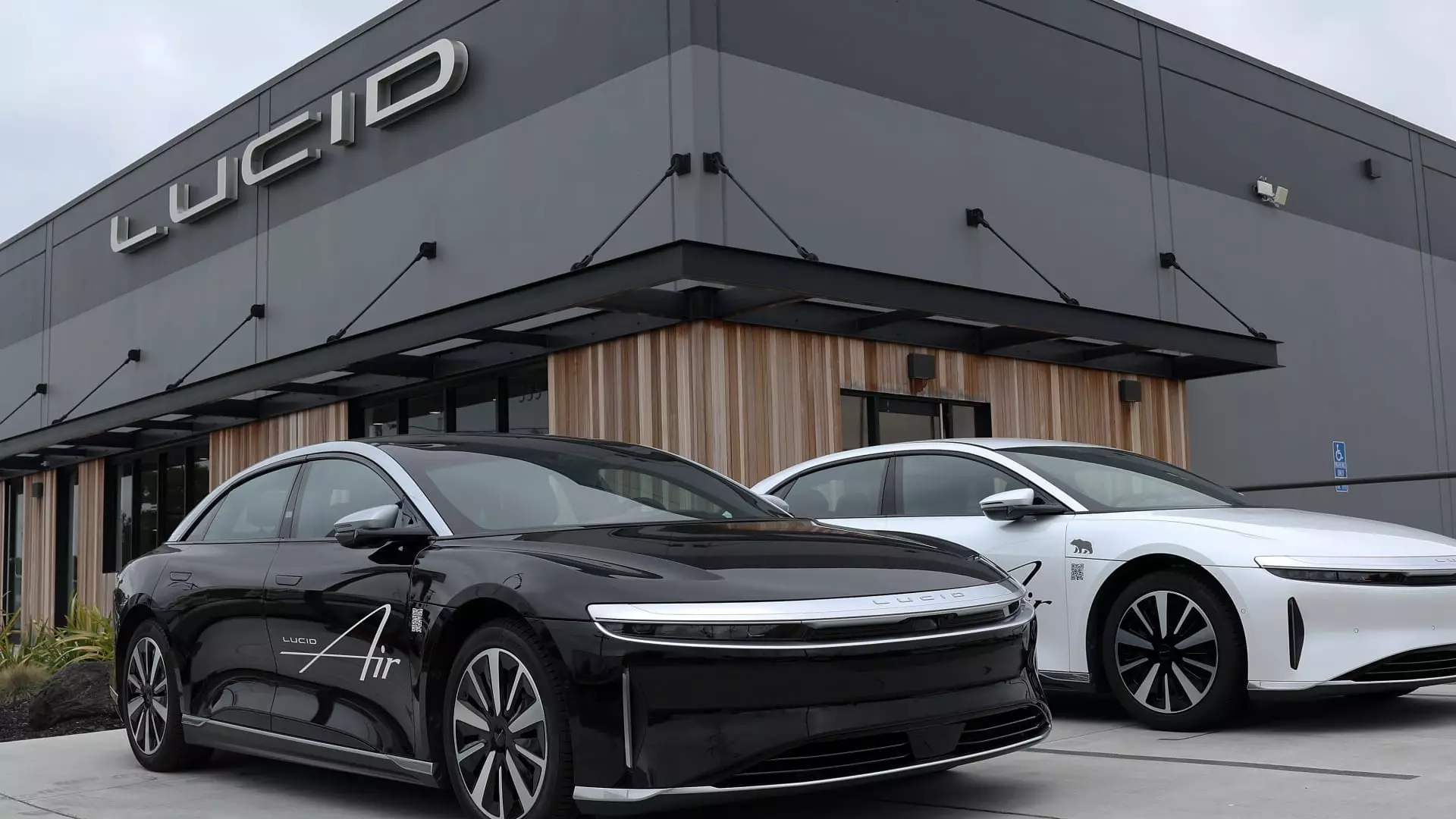In a surprising corporate shakeup, electric vehicle manufacturer Lucid Group announced on Tuesday the resignation of CEO Peter Rawlinson. This decision comes as the company aims to expand its vehicle production capacity more than twofold in the current year, targeting a total output of 20,000 units. Rawlinson’s departure marks the end of an era, as he has been pivotal in driving the company since its inception over a decade ago. Marc Winterhoff, the former chief operating officer, has stepped into the role of interim CEO, while Rawlinson will take on a new position as a “strategic technical advisor” to the board’s chairman.
Peter Rawlinson’s contributions to Lucid Group cannot be overstated. With deep roots in the automotive industry and a track record of innovation, he has been instrumental in shaping the company’s vision. He expressed pride in the team’s achievements over the past twelve years, citing a steadfast commitment to shareholder value and innovation. Although his decision to resign comes as a surprise, Rawlinson himself characterized it as a necessary transition, suggesting that it was time to “pass the baton.” His ongoing involvement as a strategic advisor indicates that while he may no longer be at the forefront, he remains committed to guiding Lucid’s future.
Rawlinson’s abrupt exit raises questions about the internal dynamics within the company and the challenges of leading a startup in the competitive electric vehicle market. According to Winterhoff, the resignation was initiated by Rawlinson after years of intensive effort to grow the company. The fact that this leadership change coincides with strong production goals suggests an urgent need for fresh perspectives on growth and operational efficiency. Despite his major stake in the company, Rawlinson’s decision to step back may reflect strategic considerations for the firm’s future trajectory amid evolving market conditions.
The announcement regarding the leadership transition also aligned with Lucid’s financial report for the fourth quarter of 2023. The company recorded a notable net loss of $636.9 million, translating to a loss of 22 cents per share against revenues of $234.5 million. Although revenue surpassed analyst expectations, the fact that losses have only slightly improved from the previous year underscores the financial challenges that lie ahead. The ambitious production target of 20,000 vehicles in 2025 compared to 9,029 vehicles produced and 10,241 delivered in 2024 indicates a significant ramp-up in operational capacity. This move reflects Lucid’s aspiration to capture a larger share of the EV market, particularly following the slower-than-anticipated adoption rates for all-electric vehicles in recent years.
Following the announcement, Lucid’s shares experienced a brief uptick in after-hours trading, rising nearly 8%. However, the stock has faced considerable volatility, with a decline of about 13% this year and a staggering 28% decrease in the previous year, driven by uncertainties in federal support for EVs and broader economic conditions. Given Lucid’s substantial backing from Saudi Arabia’s Public Investment Fund, the company’s reliance on external investment also brings an additional layer of scrutiny regarding its long-term viability in a fiercely competitive electric vehicle market.
As Lucid Group embarks on this crucial phase of leadership transition, the effectiveness of new strategies under Winterhoff’s interim leadership will be closely observed by stakeholders. While the company’s ambitious production goals may signal optimism, they also present inherent risks, especially concerning execution capabilities and market dynamics. The road ahead will demand not only innovative technology and efficient production practices but also a cohesive strategy that enables Lucid to adapt swiftly to an evolving automotive landscape. Time will tell if this leadership change will pave the way for sustainable growth and rejuvenated investor confidence.


Leave a Reply